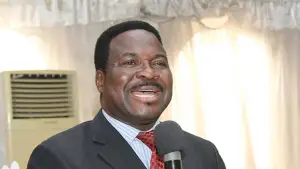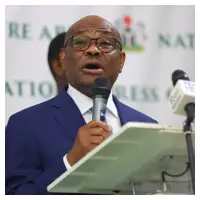The Muslim Ummah of South West Nigeria (MUSWEN) has publicly accused President Bola Ahmed Tinubu of marginalising Muslims from the South West region in federal government appointments, despite his administration's achievements in other areas.
In a statement released on Tuesday to assess Tinubu's two years in office, MUSWEN leadership expressed concern that South West Muslims have been excluded from key positions in the current administration.
The statement, jointly signed by MUSWEN President Rasaki Oladejo and Executive Secretary/CEO Professor Musliu 'Tayo Yahya, acknowledged Tinubu's accomplishments across various sectors but highlighted that Yoruba Muslims were not adequately represented in the government.
Constitutional Concerns Raised
The umbrella Islamic body for Yoruba land specifically pointed to Section 14(3) of the 1999 Constitution, which mandates balanced representation across regions and groups, arguing that the current appointments fail to reflect the region's demographic and intellectual contributions.
"Regrettably, the representation of South West Muslims in key federal positions does not reflect the region's demographic and intellectual weight, nor does it align with the principles of fairness, equity, and inclusivity enshrined in Section 14(3) of the 1999 Constitution of the Federal Republic of Nigeria."
While commending the administration's progress in economic reforms, infrastructural development, and efforts to address national security challenges, MUSWEN urged President Tinubu to take deliberate steps to address what they described as imbalances in federal appointments.
Call for Inclusive Governance
The organization's statement, titled "Two years in office: MUSWEN commends Tinubu's achievements, asks him to address marginalisation of South West Muslims in federal appointments," represents a significant challenge from a key constituency in Tinubu's home region.
This development comes as the President marks two years in office, with his administration facing increasing scrutiny over its appointments and policies across various sectors and regions of the country.
The Muslim group's concerns highlight ongoing tensions regarding representation and inclusivity in Nigeria's federal governance structure, particularly as they relate to religious and regional balance in appointments.













